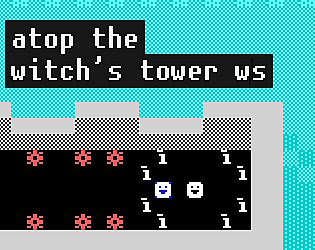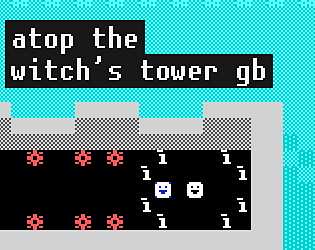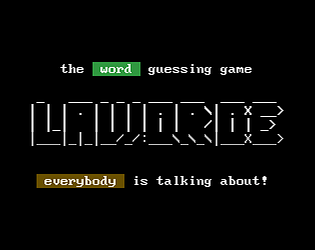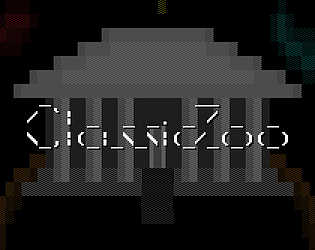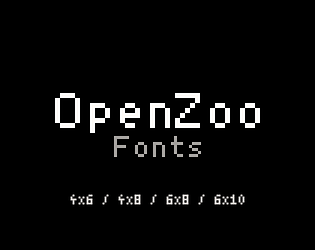There’s hundreds of indie games for the WonderSwan - it even had an official homebrew devkit, the WonderWitch. It’s just that there are very few such titles made after the console’s life and/or in the Western scene, which makes sense given its lack of release outside Japan and a few Asian markets.
asie
Creator of
Recent community posts
The *port* is still in development - the original game was last worked on 30 years ago :-)
Regarding the torch/shoot thing - that's how ZZT acted since 1992! The goal of ClassicZoo is to accurately reproduce its behavior, and fix only those bugs which have no impact on edge-case gameplay mechanics some existing worlds may rely on (that usually translates to "cause crashes/hangs").
1. SuperZ is Super ZZT - that's a distinct game engine. See https://museumofzzt.com/file/s/szzt.zip for worlds (.SZT files).
2. Old file dates? That is very strange - they should all work. More information would be great to have.
3. There should be emulated PC speaker sound, but I didn't find enough time to dig into Amiga's sound architecture in time for the jam's ending.
As per the official site: "For better performance (and to run on 640×256 screens), run setenv FPC_VIDEO_BUILTINFONT vga8 before launching the port. This may be fixed eventually, with ClassicZoo getting its own 8×8 font bundled." This is a limitation of Free Pascal's text mode emulation.
From there, just run the "ZZT" binary. For various reasons, worlds are not distributed with the binary - you can find them on the Museum of ZZT; the original four worlds or some recommendations! As the port is a quick job utilizing Free Pascal's (surprisingly easy to get going) Amiga toolchain, and is not perfectly Amiga-optimized, it won't run particularly speedily on an unexpanded 500/600 - a CPU accelerator is welcome.
There's a bit of an edge case here - I have submitted a project, "ClassicZoo". The Amiga port has technically only been in development since December, which would meet within the rules. However, since I'm the person responsible for the original reverse-engineering of ZZT's source code in March 2020 and most of the bugfixes/updates beyond, it could be argued that my personal involvement in the codebase stretches far before the jam's start date. On the other hand, the jam's rules state that using existing source code is allowed... I'll leave judgement to you on that one.
The Hall of The Kunger Binb was written with (a modified version of) the lightweight Zeta emulator in mind. As such, it depends on quite a few emulation inaccuracies or additional features created by it -> such is the fate of an emulator designed to run two executables.
However, it is possible to work around the inaccuracies and provide such functionality on a real DOS machine.
Download BINBFIX v0.1, which should hopefully take care of everything; run "binbfix" before launching ZZT, and run "binbfix u" after you're done!
Doesn't mean the game isn't computationally intensive (due to having a complex script parser written in Turbo Pascal) - I recommend at least a 486@40MHz for guaranteed smooth playthroughs. (And, of course, keep discussion of any issues specific to real PC playthroughs to this thread.)
Known issues:
- The keyboard movement isn't as smooth as under the Windows/etc. build - this one might be a bit tougher to fix, but doesn't really prevent or strongly hinder playthroughs.


